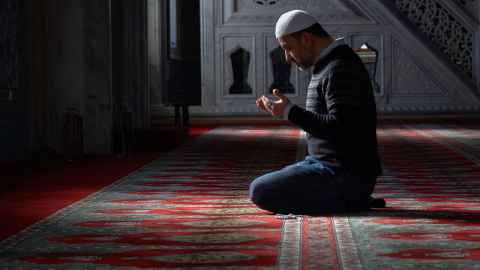The true soul of NZ will get us through
18 March 2019
Opinion: Friday afternoon, Ali went to pray at his local mosque in Christchurch. Knowing he was going to see his family again in few hours, he didn’t plan to say goodbye. A few hours later, his family’s life has changed forever, writes Dr Mohamed Alansari.

Friday afternoon, Ali went to pray at his local mosque in Christchurch. Knowing he was going to see his family again in few hours, he didn’t plan to say goodbye. A few hours later, his family’s life has changed forever.
For many, if not all, March 15, 2019 will now forever be known as the Christchurch Mosque Shooting day. Yes, someone has already started a Wikipedia page with that name too.
For many, this horrible event might soon become distant memory. For Ali’s family, the trauma is now mentally tattooed in each of them, as they try to survive a world they now see in grey.
I was at work when I heard the news, and immediately decided not to invest in reading the full update or watch that horrible video people have been sharing on Facebook. Despite succeeding in this, I found myself in the office stuttering, with tears uncontrollably running down my cheeks, all over my keyboard. I thought: “Any of my friends could’ve been there … Any of my colleagues could’ve been there … All they wanted to do was pray.”
My heart, thoughts and prayers go to the families and loved ones of those who fell under this terrorist attack. We are all hurting.
It is difficult not to think of the world’s reaction to this terrible event. As a tertiary teacher, my thoughts particularly go to the young adults all around the world who watched or knew the details of the shooting. Many of them are now wondering: “What did those people do to get shot? Why in a mosque? Why Muslims though? What’s problematic about praying or about being Muslim? Would I be in danger if I hang out with my Muslim friends?”
Perhaps, our own children are asking the same questions, as they look around them in a large classroom and see students from different cultural, ethnic, and religious backgrounds. It is my hope that parents, schools and universities alike engage with those students in civil and open-minded conversations about safety, diversity, and inclusion. It is also my hope that by being a Middle Eastern academic in a New Zealand university, I can instil in my students the belief that we can all contribute to the place we live in, irrespective of where we come from or what religious beliefs we hold. Maybe then we’ll also be able to support Muslim students, as they try to navigate a world in which they’re seen less like people, and more like targets.
I am not one to lose faith in New Zealand and what it stands for. I was overwhelmed by the amount of people who reached out via text, email, or Facebook reminding me that I am loved, I am wanted, and I am one of them.
Aggression and terror have no colour, ethnicity, gender, or nationality, in the same way that kindness and peace flow through such bounds. And that’s exactly where we can step in and help as teachers, educators, counsellors, and social workers. Our youth will look up to us, as they try to understand how to both represent and be part of diversity. They will need us, as they try to better understand how to stand out (or simply stand) in a multicultural society, how to interact in a diverse world of needs, how to support one another, how to make the once unknown familiar, how to shut down hatred, and how to move forward as one.
Regardless, I am not one to lose faith in New Zealand and what it stands for. I was overwhelmed by the amount of people who reached out via text, email, or Facebook reminding me that I am loved, I am wanted, and I am one of them. All of a sudden, my office felt lonely no more, and I felt alone no longer.
Thirteen years ago, I moved to New Zealand from the Middle East as a young Muslim boy. I was 17, rocking my mini afro, and excited by the prospect of experiencing a new culture. Today, I call New Zealand home. And that’s because of many people who showed me, by their example, the kindness and true soul of New Zealand. Thank you to all of you who reached out to your Muslim friends, colleagues, neighbours, and mates. Because of you, families like Ali’s still maintain hope for a brighter tomorrow. Together, we can get through this
Dr Mohamed Alansari is a research fellow at the Faculty of Education and Social Work. This article reflects the opinion of the author and not the views of the University of Auckland.
Used with permission from Newsroom The true soul of NZ will get us through published on 18 March 2019.